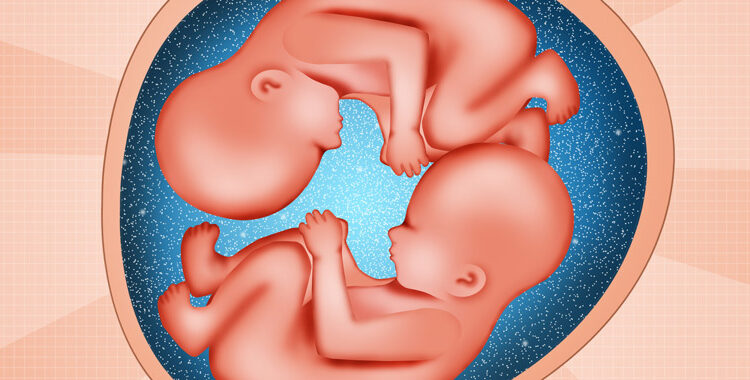Raboyseyee and Ladies,
This week we begin with big mazel tov wishes to Tess Simon, the beautiful daughter of friends Barbara and Gavy Simon, upon her marriage – just about now- to Noah Nordlicht, he, the son of Dalya and Meir Nordlicht. The Ois and eishes chayil will, of course, be in attendance and look forward to participating in this great simcha. We have known Tess -who spent much time at our home- since birth and have had the pleasure of watching her grow up and blossom. Mazel tov to both extended families.
And in the -a bit late but still vey much relevant department, two belated mazel tov shout outs to our friends Bonnie and Heshie Schertz upon the arrival of two grandchildren. Welcome to the world Levi Yitzchok Schertz (aka: Zeke), born to their children Yael and Michael Schertz. And a big mazel tov to Jennifer and Rafi Neuburger upon the arrival of a baby girl, their first. Welcome to the world Gittel Hadassah (Gloria Sadie) named after Gloria Schertz, OBM, known and loved by all who had the pleasure of meeting her. Continued joy and nachas always from your growing family.
Natural Remedies & Jacob’s Missing Daughters
They say that split peas offer significant levels of protein, iron, zinc, and phosphorus. A diet rich in split peas and other legumes may help reduce cholesterol, hypertension, and the risk of prediabetes, and may also offer significant anti-inflammatory effects. Beans, the experts tell us, provide myriad health benefits and they also fit into several different food groups. Though rich in carbs like breads and starches (and zicher cake and cookies), as a plant-based food, they fit comfortably as well in the vegetable group offering an array of vitamins, minerals and antioxidants. Moreover, they are also protein laden. Beans are also cholesterol free and provide little to no fat. More good news: Beans actually lower cholesterol and triglyceride levels.
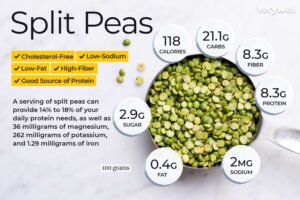
That being stated, efsher you’re wondering azoy: why is the Ois leading with split peas? Are they at all related to our parsha efsher you’re klerring? And the answer is azoy: Long before modern day nutritionists, vegans, foodies, and others who dabble in this area, deciphered the health benefits and nutritional value of peas, it was none other than Yoisef, he the master decipherer of dreams and master administrator over Paroy’s kingdom, who in this week’s parsha chapped the great value of split peas. We shall discuss this below, but first….
Arguably one of the most emotional stories ever told, the Yoisef saga which has been the main story line for the last two parshas, continues. He will garner yet more headlines next week. Get the tissues ready. The cathartic reunion between Yoisef and his brothers is coming to a shul near you; it’s high drama mamish. No wonder Broadway shows and movies were scripted about his life. Even if you’re a cold-hearted individual with ice -mamish- running through your veins, Vayigash is the one parsha that will zicher give you the chills, warm the cockles of your frozen hearts, and maybe also have you choked up as Yoisef will, after taunting his brothers, reveal himself and reconcile with the scoundrels…err, the holy brothers, that sold him into slavery 22 years ago. Did the heylige Ois just call the brothers scoundrels when the heylige Gemora and the medrish refer to them as tzadikim -righteous mamish? He did! Ober, it’s only to shock the system and get you thinking: what taka was so holy about these brothers? Were they indeed tzadikim? Where can we read about their good deeds and virtuous ways? Nowhere! Shoin!
Why are they referred to as Shivtay Ko (the RBSO’s holy tribes)? And why did they -as the Ois asked just last week- merit having their names carved into the Choishen (Breastplate) that the Kohain Godol (High Priest) wore as par part of his eight-piece ensemble? Grada, earlier this week the Ois posed this very question to a rather intelligent rabbi. And his answer: he didn’t have one! He was mamish a shtikel stumped and admitted that we know kimat nothing about more than half of the brothers and what we know about the others is not very flattering. He’s indeed correct. There isn’t much, efsher not even one word in the heylige Toirah that tells us one good deed about any of the shevotim. Does one become holy by bedding his own father’s wife? If so, Reuvain was taka holy. Does one -or efsher two- become holy by killing all the -efsher innocent- inhabitants of the city of Shechem? If so, count Shimon and Levi in; they too were holy. And does one become holy because it was davka his bright idea to sell -instead of killing- his own brother into slavery? And Yehudah? Yehudah too was holy. He was efsher holier than the rest because he had committed a prior ‘holy act’ when after bedding Tamar roadside -of course while under the impression that she was a harlot, yet another holy act- and after condemning her to death for adultery, he -at the last second- fessed up and accepted responsibility. Mamish virtuous! Are we all then holy when we often apologize to our collective wives?
Did the brothers become holy when they -as a group- asked their father to recognize a bloody tunic which caused Yaakov to then think that taka his son was dead? If so, we need to agree. Or did they become holy only as a result of their 22 ongoing lies and coverup? Hec, they didn’t even attend the famous Sheym & Eyver yeshiva! Efsher we can kler that Yehuda did tshuva (repented) as did (maybe) Reuvain and for that reason, they are holy, but the others? Ver veyst? Is saying you’re sorry after being exposed after 22 years, enough? Did they ever truly apologize? Then again, who are we to judge? Do you want the RBSO judging you? If the RBSO selected their names to adorn the Koihain’s wardrobe, it’s none of your business why. Veyter and let’s move on.
A number of pisukim after Yoisef’s great reveal, in advance of the pending reunion between father and long- lost son, and under Paroy’s specific instructions, Yoisef loaded up his brothers with all sort of goodies including wagons (to transport the family back), changes of clothing and food items. Specifically for his father whom he had not seen or spoken to in 22 years, Yoisef sent the following: ten donkeys laden with ‘the best Mitzrayim had to offer,’ along with ten she- donkeys laden with grain, bread and food. Let us read the relevant posik innaveynig. Says the heylige Toirah (Bereishis 45:23), azoy:
| 23. And to his father he sent the following: ten he donkeys carrying of the best of Egypt, and ten she donkeys carrying grain, bread, and [other] food, for his father for the way.
Let us also read the Rashi: |
כגו ּלְאָבִ֞יו שָׁלַ֤ח כְּזֹאת֙ עֲשָׂרָ֣ה חֲמֹרִ֔ים נֹֽשְׂאִ֖ים מִטּ֣וּב מִצְרָ֑יִם וְעֶ֣שֶׂר אֲתֹנֹ֡ת נֹֽ֠שְׂאֹ֠ת בָּ֣ר וָלֶ֧חֶם וּמָז֛וֹן לְאָבִ֖יו לַדָּֽרֶךְ: | |
| he sent the following: Heb. כְּזֹאת, lit., like this, [meaning:] according to this amount. And what is the amount? Ten he-donkeys, etc. | שלח כזאת: כחשבון הזה. ומהו החשבון, עשרה חמורים וגו’: | |
| of the best of Egypt: We find in the Talmud (Meg. 16b) that he sent him aged wine because elderly people find contentment with it. [I.e., the fact that wine improves with age often affords contentment to the elderly.] According to the Midrash Aggadah (Gen. Rabbah 94:2 on verse 18), however, this refers to pounded beans [which have a soothing effect on a troubled spirit]. | מטוב מצרים: מצינו בתלמוד ששלח לו יין (ישן) שדעת זקנים נוחה הימנו. ומדרש אגדה גריסין של פול: | |
| grain, bread: As the Targum renders. | בר ולחם: כתרגומו: | |
| and [other] food: Things eaten with bread. | ומזון: ליפתן: |
Nu, after delineating the various items he sent for his father, Rashi and a few others were wondering what the words ‘Mituv Mitzrayim’ meant. Says he -mamish above in the shaded box- quoting the heylige Gemora (Migilla 19), azoy: he sent him aged wine. Why old wine? Because old people enjoy drinking aged wine. And says the Maharsha on the heylige Gemora (Migila 16b) azoy: aged wine is enjoyed by older people because they tend to get cold, and wine warms them up. Shoin, wine it was. Was it? Ober did Yoisef have access to kosher wine? Was he also now a vintner? Did he even keep kosher?
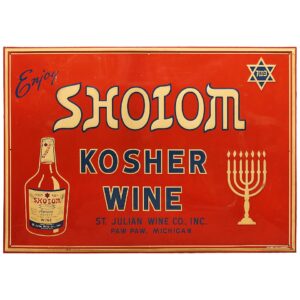
Let’s recall that he was married to a shiksa; did she keep a kosher home? A necthiger tug (fuhgeddaboudit)! Then again, even if he didn’t, avada we will give him a pass given that he was enslaved and in prison for at least twelve years, where mistama they did not have a qualified vendor to deliver kosher meals. Let us recall that he was away from a kosher home -however that manifested itself in the Yaakov household- for over two decades. Ober, the question is this: how could Yoisef send non-kosher aged wine to his father, who -according to some- observed the entire Toirah kulah (entire Toirah)? How? Ver veyst? Mistama this question also bothered Rashi which prompted him to offer us more food for thought, this time in the form of split beans.
Not totally convinced that Yoisef sent his father wine, Rashi -shaded box above- then quotes a medrish (Bereishis Rabba 94b) which tells us that Yoisef did not send his dad aged wine. Instead, he sent him split beans. Why split beans? Another medrish tells us that split beans were beneficial for relaxing a person’s spirits. The bottom line: If anyone’s spirits needed some calming and some relaxation, Yaakov was zicher a candidate. Nu, who knew that beans have such calming effects on people? Says the heylige Gemora (Yirushalmi Yoma 1:4) azoy: On the eve of Yom Kippur, the Koihen Godol was forbidden from eating split beans. Why? Because split beans induce sleep. Shoin. No beans for him! Says the medrish (Divrei Dovid) that the split beans found in Mitzrayim did in fact have calming properties. They were used to calm people with worries. Ober, what worries would Yaakov have once he received word and was to be convinced that the brothers were (finally) speaking the emes, and that Yoisef was alive and well? Says the medrish: not to worry. In this case, the split beans also help people fall asleep. Nu, while the heylige Gemora has differing opinions on whether or not beans are good for the spirits, kimat all will agree that a healthy serving of beans -of kimat every variety- will have less than a calming effect on one’s eco-system. Perhaps the beans were meant for the animals, to make them run faster, if you chap. Kuli Almi loi piligi (few, if any, would argue) that a good portion of beans has been known to make many run faster, if you chap. Whether the beans helped relax Yaakov or put him to sleep we don’t know. What we do know is that the topic is discussed and argued over. And why not? It’s the heylige Gemora, where everything is discussed and argued over, including the potential calming effects of beans.
As an aside, the medrish (Bereishis Rabbah 94,2) identifies טוב מצרים as special white beans, containing medicinal with anti-depressive properties. Were they laced with CBD? Ober, why taka did Yoisef send his father split peas? Let’s checkout this pshat: Yoisef knew that his brothers’ return to K’nan with the news that he was very much alive and a ruler over Egypt would cause his father not only joy but also great distress. Yaakov would then also discover the ugly truth that his holy sons had all (sans Binyomin- been involved in a great and extended 22-year conspiracy which involved lies, deceit, conspiracy, kidnapping, and much worse. Yaakov would have pierced it all together. His joy at the news of Yoisef being alive and well would be tempered by his anger at his boys. What to do? Yoisef -mamish a genius- sent his father one of the choicest foods of Egypt – split peas – to keep his nerves in check. As well, efsher to indicate to his father that there are things in the world that reach superlative levels of usefulness and enhanced value through being split, divided and separated. We’re not talking stock splits. Was Yoisef hinting to his father that only through being separated -split apart from his whole family- and sold into slavery in Egypt, had he risen to greatness and was now able to sustain and support his family and save them from the famine? Perhaps! Mamish gishmak. The bottom line: it does epes appear that split peas offer more than significant levels of protein, iron, zinc, and phosphorus. A diet rich in split peas and other legumes may help reduce cholesterol, hypertension, and the risk of prediabetes. In our case, one could argue that the split peas offered offer significant anti-inflammatory and even calming effects. Veyter.
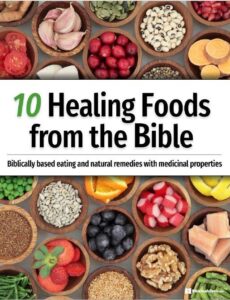
A few weeks back, as the Yoisef saga began to unfold, we read this posik (verse) in Parshas Vayeshev (Bereishis 37:35): “All his sons and “daughters” sought to comfort him.” Let’s read the posik:
| 35. And all his sons and all his daughters arose to console him, but he refused to be consoled, for he said, “Because I will descend on account of my son as a mourner to the grave”; and his father wept for him. | להוַיָּקֻ֩מוּ֩ כָל־בָּנָ֨יו וְכָל־בְּנֹתָ֜יו לְנַֽחֲמ֗וֹ וַיְמָאֵן֙ לְהִתְנַחֵ֔ם וַיֹּ֕אמֶר כִּֽי־אֵרֵ֧ד אֶל־בְּנִ֛י אָבֵ֖ל שְׁאֹ֑לָה וַיֵּ֥בְךְּ אֹת֖וֹ אָבִֽיו: |
Ober, at that point, early in the story, Yaakov could not be consoled. Yoisef was gone and the brothers intimated to their father that he was dead. His daughters? Which daughters were there to console him? Did he have more than one, the famous Dina? Let’s remember those “daughters” and let’s roll forward to our parsha where we learn this posik (Bereishis 46:7):
| ז בָּנָיו וּבְנֵי בָנָיו, אִתּוֹ, בְּנֹתָיו וּבְנוֹת בָּנָיו, וְכָל-זַרְעוֹ–הֵבִיא אִתּוֹ, מִצְרָיְמָה. {ס} | 7. his sons, and his sons’ sons with him, his daughters, and his sons’ daughters, and all his seed brought he with him into Egypt. |
Did you read that? This week, following the news about Yoisef being alive and well, Yaakov and his family are relocating to Mitzrayim. And what do we read? That his daughters accompanied him. And the question again is this: Did Yaakov have any other daughters? Why would the heylige Toirah twice mention them yet we never heard of them? What’s pshat here? Who were these daughters? And why are they not mentioned in the heylige Toirah? Were Yaakov’s other daughters not worthy of a Toirah-shout-out? Gornisht (nothing)? So we ask again: Who were Yaakov’s daughters and granddaughters? It’s epes mashma (appears) from the quoted pisukim that Yaakov had sons, grandsons, daughters -at least more than one- and granddaughters. Ober if we take a count of the bodies that Yaakov brought with him to Mitzrayim – also in our parsha- we will find but one daughter delineated by name. Dina is counted, as is one granddaughter, she the famous Serach bas Osher (daughter of Asher) who never died. Her amazing story for another day.
Which was it? One daughter and granddaughter, or many? The pisukim don’t match up. Ober not to worry because says Ibn Ezra azoy: the word “daughters” refers to all of Yaakov’s female progeny. Ober if daughters mean all, why would the heylige Toirah in the posik above separately delineate daughters and then granddaughters as those who accompanied Yaakov on his resettlement journey into Mitzrayim? Nu, not to worry because who says that what Ibn Ezra said in one posik has to necessarily match what he says in a second posik? No one! Shoin and says the very same person azoy: His daughters — consisted only of Dina. Perhaps Dina had some young maidservants who grew up with her, and for the sake of his daughter, Scripture referred to them as Yaakov’s daughters.
Says the Medrish: that the term “His daughters,” – refers only to Dina: in other words, he had only daughter. And the term “his granddaughters” this refers to Serach: only one granddaughter went on the trip. Ober, listen to this bombshell! Efsher you’re wondering who the heylige shevotim married? And soon you’ll see -so gishmak mamish- how the heylige Ois will tie all this together.
We know that Yehuda married an unnamed Canaanite shiksa and we know that Yoisef married Osnas, yet another shiksa, ober who did the boys marry and why is this relevant? Were their wives Jewish? Says Rashi and halt kup here, azoy: who they married is a machloikes (disagreement) between Rebbe Yehuda (not the Yehuda in our story) and Rebbe Nechemia. Said Rebbe Yehuda: Twin sisters were born to each and every one of the boys (Yaakov’s sons) and it was them, those twin girls, whom the boys married. They married their own sisters? OMG and quite shreklich! So much for Yaakov’s boys observing the entire Toirah kulah. And Yaakov allowed these marriages? Ober said Rebbe Nechemia: not to worry, they would never marry their own sisters. Banish the thought. The boys married shiksa Canaanite (Canaanite) meydlich. And where the posik reads “all his daughters” it really means none other than his daughters-in-law, since a person may call his son-in-law “son” and his daughter-in-law, “daughter.” Seemingly, even if they are not Jewish. Noch a mol (one more time) Again: Rebbe Yehuda says Yaakov had 12 daughters, Rebbe Nechemia says he had but one and a bunch of shiksa daughters-in-law! Well, blow me down. Was the Yaakov Ovenu family mamish an incestuous clan?

Says the RambaN (Bereishis 38:2) not to worry. To make these unions somewhat less offensive, “the sons of Leah would have to marry the twin sisters of the six other tribes, and those tribes, their twins,” so that each would marry a sister by their father and then such marriages would not be forbidden to descendants of Noaich. How do you like that?
Ober according to Rebbe Yehuda who suggests that the boys had twin sisters and taka married them, what happened to them and why are they not named or counted among the 70 that went to Mitzrayim with Yaakov? Says he: all of the women died: finished and kaput before their father moved the family. Notwithstanding the fact that Yaakov’s sons were about forty years of age at this time, and being twins, the girls would have been the same age, seemingly all of the women perished! Oy vey! Bottom line: marrying your own brother, especially a twin, could kill you.
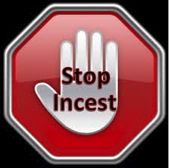
Married their twin or even regular sisters? Isn’t this verboten in the Toirah? It is! Ober not so fast because this entire storyline takes place a few hundred years prior to Matan Toirah (Revelation) when -of course- all were free to roam about at will. On the other hand, weren’t we taught that our heylige forefathers observed the entire Toirah anyway? We were! What’s pshat? And didn’t we learn in the heylige Gemora (Yoma :28) that Avrohom voluntarily observed all the commandments in the written and oral Toirah? We did! In fact, he even -so says the Gemora- observed the rules of the rabbinic commandment known as eruv- tavshilin (a method of food preparation when the day after a festival is shabbis, and preparation of food on the festival for shabbis is not permitted). And the question is azoy: If these laws were operative prior to the Torah having been revealed at Mount Sinai to the Jewish people, how could Yaakov have married two sisters while the first sister had still been alive? Also, how could any of his sons married their sisters? What’s pshat? It’s azoy: it’s taka emes -of course it is if the heylige Gemora so tells us- that these laws were known by tradition since Avrohom’s time, ober, they had not become obligatory until after revealed at Mount Sinai. Our forefathers were free -so seemingly were their children- to choose the parts of the commandments they wished to observe voluntarily even they had been privy to them through the Holy Spirit. And for those reasons, the holy brothers were able to marry their twin sisters as was Yaakov allowed to marry two full and two half-sisters. Gishmak.
Though this may all seem mamish farfetched and statistically improbable, avada we have to at least appreciate the effort and the very clever thought process. It is possible? Ver veyst? It seems somewhat unlikely that among seventy souls, that sixty-eight were male and only two were female. Did Yaakov’s sons only beget males? And if they taka all died, may we assume that Yaakov’s grandchildren all married Egyptian girls? Ver veyst?
More to think about: the heylige Toirah records the lineage of the son of an Egyptian man and an Israelite woman (Vayikra 24:10). Ober, if all of the children of Israel were in fact descended from Egyptian women, then what would have made that case so exceptional? Is the difference between an Egyptian mother and an Egyptian father so significant? Ver veyst?
Ober said Rebbe Yehuda: Yaakov’s sons married their twin sisters. And why is he so sure? Because, in his opinion, it was unthinkable that they might marry shiksa Canaanite women. On the other hand, because Rashi and Targum Yoinoson could not fathom that Yehuda would do such a dastardly act as marrying a Canaanite girl, they came up with a solution: Canaanite does not mean mamish a shiksa from Canaan. Instead, the word means ‘merchant.’ Gishmak! Didn’t Tamar have a roadside gisheft (little business)? She did! And didn’t she taka demand payment up front before rendering such services? She did! Sounds like she was taka a merchant, case closed. Moreover, add the RambaN: Tamar may not have been a shiksa Canaanite girl after all. And how is this possible?
Listen to this theory: Tamar was the daughter of one of the residents of the land, ober not the daughter of a man with Canaanite affiliation, for it is unspeakable that Dovid Hamelech (King David) and eventually our Moshiach would come from the seed of the accursed slave, Canaan. Says the Medrish (Bereishis Rabbah 85.10) azoy: Tamar was the daughter of Shaim (son of Noaich). The bottom line: according to the heylige Toirah, she was a Canaanite ober according to the Medrish, she was either a merchant, a Jewish merchant, or just plain Jewish, ver veyst. Then again, didn’t we long ago establish that Shaim ben Noiach was also not Jewish? We did!
A gittin Shabbis-
The Heylige Oisvorfer Ruv
Yitz Grossman
